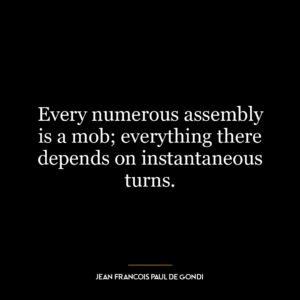This quote describes a club as a gathering of like-minded individuals who come together under specific circumstances or rules. The term “good fellows” implies that these are people who enjoy each other’s company, share common interests, and maintain mutual respect. They meet not randomly but under ‘certain conditions,’ which might refer to established norms, shared goals, or agreed-upon schedules.
In essence, Johnson is defining a club as more than just a social gathering; it’s an organized assembly where people can exchange ideas and experiences in a comfortable environment. It is the quality of the interactions rather than the quantity that defines such assemblies.
In today’s world, this concept applies to various situations ranging from professional networking groups to hobby clubs. For instance, book clubs are assemblies of literature enthusiasts who meet regularly to discuss selected books. These meetings occur under certain conditions such as having read the chosen book and being willing to engage in respectful discussions about it.
The idea also applies significantly in personal development contexts. Many self-improvement strategies involve forming or joining groups with shared development goals – be they fitness classes (for physical health), mastermind groups (for business growth), or support groups (for emotional well-being).
These ‘clubs’ provide platforms for learning from others’ experiences and perspectives while offering motivation through collective progress towards common objectives. As per Johnson’s definition, these should ideally be spaces where good fellows – positive influences who respect each other – assemble under specified conditions designed for mutual growth and improvement.
Therefore, whether you’re looking to grow personally or professionally, seeking out your own assembly of ‘good fellows’ could be beneficial – providing you with both support network and sounding board for your ideas while helping foster an environment conducive for growth.





